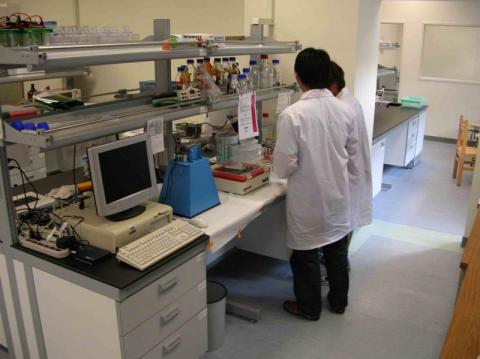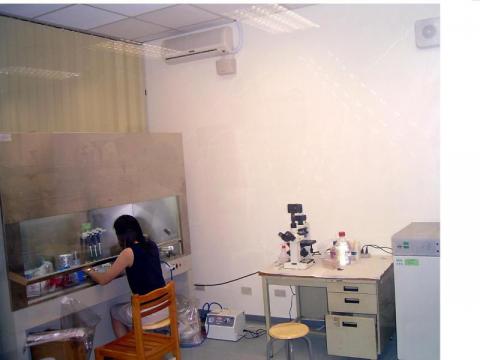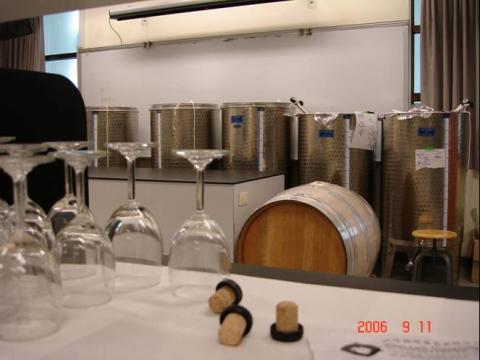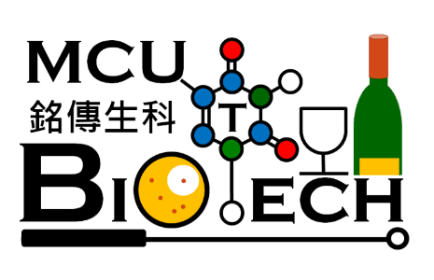Mission & Goals
Undergraduate
Mission
The Department of Biotechnology strives for excellence in imparting academic knowledge, providing professional training, and strengthening the sense of team spirit to students.
Education Goals
To acquire the basic knowledge of biotechnology and skills to operate techniques in biotechnology, with active learning attitude and ability to work in teams.
G1. To acquire a basic knowledge of biotechnology.
G2. To acquire skills to operate basic techniques in biotechnology.
G3. To study with active learning attitude and international viewpoints.
G4. To study with communication skills and ability to work in teams.
Core Competencies
C1. To provide a sound basis for knowledge in life science.
C2. To be fully aware of the knowledge in biotechnology-related areas.
C3. To comprehend the theories and standard operating procedures for experiments and to possess capabilities of data analysis and explanation.
C4. To master skills in carrying out experiments of fundamental importance.
C5. To develop active learning, to have a positive attitude toward studies, to think critically and to solve problems independently.
C6. To have a global view in order to be creative and, more importantly, to have morals.
C7. To develop leadership of capability integration.
C8. To foster the abilities of getting on well with others and good communication.
>>>Fundamental Professional Competence Standards & Basic Core Competencies
Graduate
Mission
The Department of Biotechnology strives for excellence in imparting academic knowledge, providing professional training, and strengthening the team spirit to students.
Education Goals
To acquire the advanced knowledge and skills to operate professional expertise in biotechnology, study with the pursuit of innovation, team coordination and management capabilities
G1. To acquire an advanced knowledge of biotechnology
G2. To acquire skills to operate professional techniques in biotechnology
G3. To study with the pursuit of innovation and international viewpoints
G4. To study with team coordination and management capabilities.
Core Competencies
C1.To possess advanced knowledge in life sciences
C2.To be fully aware of the knowledge and operational skills in biotechnology-related areas
C3.To be able to present the results and processes of research comprehensively
C4.To foster the abilities of independent thinking, creativity, and problem solving
C5.To develop a comprehensive global view and, more importantly, have morals
C6.To nurture a good attitude toward studies and active learning in order to reach a lifetime goal of the self-study
C7.To be equipped with the capabilities of coordinating professionals from different disciplines
C8.To be able to integrate individuals by leadership, management, and planning
>>>Fundamental Professional Competence Standards & Basic Core Competencies



CHARACTERISTICS OF TEACHING IN OUR DEPARTMENT
1. Emphasize computer science: Students are required to take computer science-related courses from first to third years, which strengthens their ability to deal with future bioinformatics courses.
2. Research topics: Advanced courses are accompanied by research topics, cultivating students' capabilities in independent thinking, decision making, analysis, and operation of experiments.
3. Emphasize chemistry training: Students are required to take chemistry courses from first to third years, in order to fully understand life processes from a biochemical perspective.
4. Emphasize lab courses: Currently, we have three well-equipped laboratories suitable for students to carry out their experiments in a professional environment.
Most importantly, all students obtain valuable hands-on experience.
TEACHING CONTENT
Based on life processes, we educate our students by providing them with the knowledge of the state-of-art technology in order for them to become professionals in biochemistry-related areas including bioinformatics, biotechniques, and agricultural science. In order to reach that goal, we provide our students with high-quality education in both the theory and practices of biotechnology including biology, computer science, chemistry, medicine, and health care by cross-disciplinary teaching and research in these areas. Currently, we have four curriculum tracks in the areas of biotechniques, biomedicine, bioinformatics, and food-related science for students in our department. In addition, students are required to take language (mainly English) and computer science courses for four and three years, respectively, during their four-year student career, so that they are fully familiar with these skills afterwards. Students are also strongly encouraged to take humanities courses such as economics, management, law, and ecology. In this way, we hope they will be better off when they deal with their colleagues in different areas in the future.









